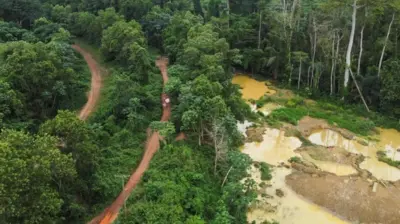We've updated our Privacy and Cookies Policy
We've made some important changes to our Privacy and Cookies Policy and we want you to know what this means for you and your data.
Call for action to protect 'the lungs of the sea'
Image source, DAVID WROBEL, VISUALS UNLIMITED /SPL
- Author, Helen Briggs
- Role, ΒιΆΉΤΌΕΔ News
More than 100 scientists from 28 countries have called for global action to protect seagrass meadows.
Seagrasses are flowering plants that form dense underwater beds in shallow water.
Distinct from seaweed, the plants provide shelter and food for a large range of animals, including fish, marine mammals and birds.
Many seagrass meadows have been lost because of human activities, say researchers.
In a statement, the scientists said: "Seagrass meadows are important fish nurseries and key fishing grounds around the world.
"The loss of seagrass puts the livelihoods of hundreds of millions of people at risk and exposes many people to increasing levels of poverty.
"Seagrass loss also places the viability of our remaining populations of green turtle, dugong and species of seahorse at risk.
"Seagrass loss should not be an option."
The call for action is being led by Dr Richard Unsworth of Swansea University.
There is no international legislation for seagrasses, therefore protection typically happens at a local or regional level.
'Lungs of the sea'
The has been released ahead of an international meeting on seagrass protection in North Wales this month.
Seagrass, which is found in shallow waters of coastal regions on every continent except Antarctica, is declining globally at a rate of about 2% a year.
In January, a study of seagrass meadows around the coast of the British Isles found evidence of damage from pollution and human disturbances.
Surveys of 11 sites in England, Wales, Northern Ireland and the Republic of Ireland found high nitrogen levels in water were affecting the health of seagrass meadows at all but two areas.
Seagrass is known as the "lungs of the sea" because of its ability to generate oxygen through photosynthesis.
Follow Helen on Twitter
Top Stories
More to explore
Most read
Content is not available








